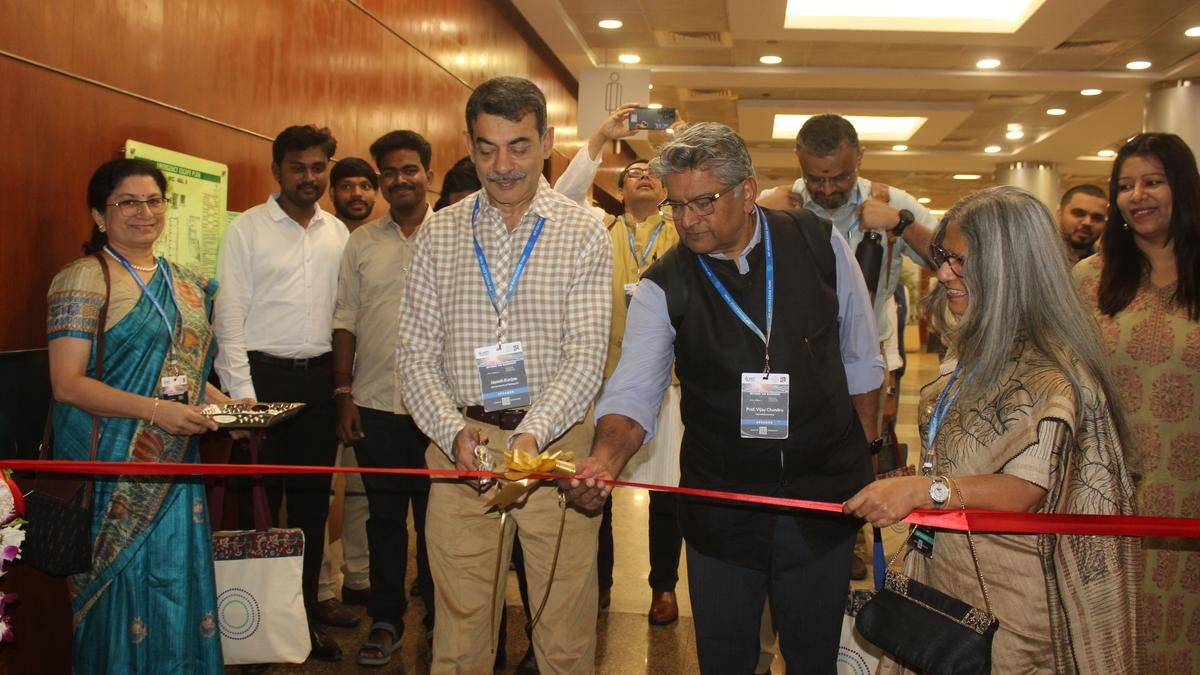The biotechnology sector has emerged as one of India’s fastest-growing industries and a top priority for the government. Over the past decade, the country’s bioeconomy has expanded from about $10 billion in 2014 to nearly $165 billion in 2024, reflecting massive progress in innovation and industrial applications. The government’s vision now extends toward achieving a $300 billion bioeconomy by 2030, demonstrating its long-term commitment to making biotechnology a key driver of national development. This progress is not limited to laboratories — biotechnology now plays a vital role in healthcare, agriculture, environmental protection, and industrial growth.
Government Policies Driving the Sector
To sustain this momentum, the government has launched several frameworks and strategies to strengthen the sector. The National Biotechnology Development Strategy (NBDS) 2021–2025 lays the foundation for enhancing research capabilities, building skilled manpower, and encouraging entrepreneurship in biotechnology. The Department of Biotechnology (DBT), under the Ministry of Science and Technology, leads these initiatives by providing funding, guidance, and infrastructure support to research institutions and start-ups.
In addition, the government approved the BioE3 Policy — short for Biotechnology for Economy, Employment, and Environment — in 2024. This policy aims to promote high-performance bio-manufacturing, green technologies, and innovations in bio-agriculture, bio-polymers, and marine biotechnology. Together, these policies signal a strong governmental push to turn India into a global hub for biomanufacturing and applied biosciences.
Investment and Institutional Support
The prioritization of biotechnology is also evident in budgetary allocations and institutional investments. The Union Budget 2025–26 introduced increased funding for research and innovation, while also strengthening support for biotech entrepreneurship. Programs like the BioSaarthi Mentorship Initiative are designed to help young innovators and researchers turn ideas into viable commercial ventures.
Moreover, the creation of biotech parks and incubators across India — in Hyderabad, Pune, Bengaluru, and Guwahati — provides crucial infrastructure for research and development. These facilities offer shared laboratories, advanced equipment, and business mentorship, enabling start-ups to grow sustainably. Such initiatives are closely tied to the “Make in India” and “Start-up India” missions, aligning biotechnology with national economic goals.
Fostering Innovation and Industrial Growth
A major goal of the government’s biotechnology policy is to connect scientific innovation with industry-scale production. India is increasingly promoting biopolymers, enzymes, and bio-based chemicals to replace imported industrial materials. As a result, the biotech start-up ecosystem has flourished — India now has over 13,000 biotech start-ups, making it one of the largest innovation clusters in the world.
The government has also been encouraging industry-academia partnerships, ensuring that discoveries in genetics, molecular biology, and synthetic biology are effectively converted into practical solutions. This synergy between science and business has allowed India to gain a competitive edge in the global markets for vaccines, biofuels, agricultural biotechnology, and pharmaceuticals.
Biotechnology for Sustainable Development
Biotechnology plays a key role in achieving India’s sustainability and environmental goals. Through advances in bio-agriculture, farmers can now use genetically improved crops that require fewer fertilizers and resist pests naturally, reducing environmental damage. Biofuels and biodegradable materials are helping the country combat pollution and climate change. The government’s focus on a circular bioeconomy ensures that biotechnology innovations promote recycling, waste reduction, and energy efficiency.
In healthcare, biotechnology has been instrumental in producing affordable medicines, vaccines, and diagnostic tools — improving access to quality healthcare for millions of citizens, particularly in rural areas. These efforts highlight how biotechnology serves as both an economic driver and a tool for inclusive and sustainable growth.
Challenges Facing the Sector
Despite remarkable progress, India’s biotechnology industry still faces several challenges. A key issue is the gap between research and large-scale commercialization. Many start-ups struggle to secure sufficient funding for advanced trials and production facilities. Infrastructure development is uneven across the country, with leading centers concentrated in southern and western India, while other regions lag behind.
There is also a shortage of skilled professionals in specialized fields such as bioprocess engineering, bioinformatics, and regulatory sciences. Furthermore, complex regulatory procedures for biotech products in healthcare and agriculture sometimes slow innovation and market entry. Recognizing these barriers, the government is now working to simplify approval processes, attract private investment, and improve training in advanced biotechnology disciplines.
Future Outlook: A Vision for 2030
Looking ahead, biotechnology is expected to become a cornerstone of India’s economic and social development. Continued investments in R&D, streamlined policies, and global collaborations will help India strengthen its position as a biotech powerhouse. Lessons from the COVID-19 pandemic emphasized the importance of self-reliance in vaccine and drug production — a need the government is actively addressing through expanded domestic manufacturing capacity.
Biotechnology is also poised to play a central role in tackling climate change, food security, and public health challenges, while generating high-skilled employment opportunities for the youth. If current initiatives continue successfully, India’s biotech industry could emerge as a global leader in both innovation and sustainability by 2030.
Conclusion
In summary, the biotechnology sector remains a top priority for the Indian government, serving as a bridge between science, industry, and sustainability. Through visionary policies like NBDS and BioE3, increased funding, start-up support, and global collaborations, the government is building a strong ecosystem that encourages innovation and economic growth. Although challenges persist, India’s steady progress and strategic planning make it clear that biotechnology will continue to shape the nation’s future — driving progress not only in science and industry but also in health, environment, and quality of life for all.







